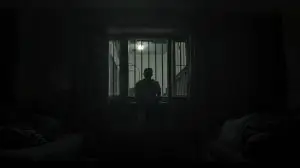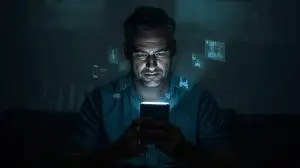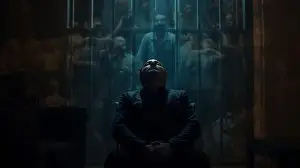Originally posted February 13, 2021
Three weeks. Twenty-one days. Somehow it feels like three years have compressed into this brief span since I walked through those gates. Time operates differently on this side of the fence — not necessarily better or worse than the strange temporal distortions of prison, but distinctly alien in its own way.
Inside, time moved with the deceptive fluidity of a fever dream. Minutes could stretch into what felt like hours during lockdowns or disciplinary actions. Days blended together in an endless cycle of counts, meals, and forced routine. Yet entire years would seem to vanish when viewed in retrospect, collapsed into forgettable moments of survival and endurance.
You learn to live with this temporal dissonance. Eventually it all blends together anyway, leaving only the constant yearning for each day to pass until the countdown finally reaches zero.
Time’s New Mathematics
Freedom operates on its own relativistic principles. Today marked the end of my second week of employment and the arrival of my first real paycheck in 25 years. The weight of that direct deposit — both literal and symbolic — represents far more than financial compensation. It’s proof of productivity, contribution, worth measured in something other than the mere act of survival.
These three weeks have blurred past in a torrent of learning, doing, achieving. I’ve absorbed knowledge at a rate that feels almost violent in its intensity. Part of me hopes this acceleration will eventually slow, allowing me to savor the life I fought so desperately to reach. But for now, deceleration isn’t really an option. Too much ground to cover, too many systems to master, too much lost time to make up.
The peculiar blessing of this pace is its forward momentum. There’s no time to dwell on what was lost, only energy for building what comes next. Each accomplished task becomes foundation for the next challenge, creating a sense of progress that feels almost addictive after decades of stagnation.
The Infrastructure of Independence
Rebuilding a life from scratch reveals the hidden complexity of adult existence. Every basic function requires preliminary functions, creating a labyrinth of dependencies that can feel overwhelming to navigate.
Credit represents perhaps the most Kafkaesque challenge. I need credit to access credit, but I have literally zero credit history after 24 years of institutional existence. My financial identity was essentially erased, leaving me to start from absolute zero at age 42. Building creditworthiness will require creative strategies and patient cultivation — skills I developed in prison but never applied to financial systems.
The driver’s license saga continues to unfold with bureaucratic predictability. I can’t get licensed without passing tests I haven’t taken in 24 years, can’t practice driving without a permit, can’t get comfortable behind the wheel without practice. Each step requires scheduling a day in advance due to home detention restrictions. The rules multiply exponentially, but they’re puzzles to solve rather than barriers to acceptance.
Financial Literacy at 42
Drawing my first paycheck triggered the sobering realization that I need to learn money management from the ground up. Budgeting isn’t just about immediate necessities anymore — it’s about building toward larger goals like vehicle ownership, independent housing, and long-term financial security.
The mathematics of adult responsibility add up quickly. Car payments, insurance, rent, utilities — expenses I’ve never had to consider as an 18-year-old boy who spent what little money he had on teenage foolishness. Now every dollar requires strategic allocation between immediate needs and future possibilities.
This financial education feels empowering rather than overwhelming. Each budget category represents a choice I get to make, a priority I get to set. After decades of having every aspect of life managed by institutional systems, the responsibility of financial planning feels like a form of freedom in itself.
Workplace Gratitude
My professional life continues to exceed every expectation I’d held during my incarceration. The work itself aligns perfectly with my interests and abilities — using technical skills to solve meaningful problems while contributing to something larger than myself. The company culture emphasizes collaboration over competition, growth over punishment, potential over past mistakes.
More importantly, I genuinely love the people I work with. They’ve welcomed me without reservation, evaluated me based on my contributions rather than my history, and created an environment where I can focus on becoming the professional I want to be rather than defending against who I used to be.
This workplace acceptance challenges assumptions I’d carried about how the world would receive me. Instead of the suspicion and judgment I’d expected, I’ve found genuine appreciation for what I bring to the team. It’s a daily reminder that people are generally far more decent than our worst fears suggest.
Support Network Strength
Friends and family have rallied around my reentry with a consistency that sometimes feels overwhelming in its generosity. Their support creates a safety net I’d never experienced before — the knowledge that help is available if I stumble, encouragement is ready if I doubt, celebration awaits each milestone I reach.
This network represents one of the few advantages I possess over other returning citizens who face reentry alone. The difference between having support and lacking it can determine whether someone succeeds or returns to prison. I’m acutely aware of this privilege and committed to using it responsibly.
The challenge lies in balancing acceptance of help with development of independence. I need to become self-sufficient without rejecting the genuine care offered by others. It’s a delicate dance between gratitude and autonomy.
Problem-Solving Confidence
Every small victory builds confidence for larger challenges. Each bureaucratic maze I navigate successfully, each technological hurdle I overcome, each social interaction I handle appropriately — they all contribute to a growing sense of competence in this strange new world.
The problem-solving skills developed through decades of institutional limitations translate surprisingly well to civilian challenges. When you’ve learned to accomplish tasks with minimal resources and maximum constraints, the relative freedom of civilian life opens up possibilities that feel almost unlimited.
I’m approaching each obstacle as a puzzle to solve rather than a barrier to endure. This mindset shift — from victim to agent — may be the most crucial psychological transition of reentry.
Growing Confidence
Confidence builds incrementally, like physical strength developed through consistent exercise. Each successful navigation of a previously unknown system adds to my growing certainty that I can handle whatever comes next. This isn’t arrogance — it’s earned self-assurance based on demonstrated capability.
The knowledge that I have somewhere to turn when I get stuck provides crucial psychological support. Not everyone can say that, and I’m deeply aware of how fortunate I am to have built relationships that survived my incarceration. This support network doesn’t solve my problems for me, but it ensures I’m never facing them entirely alone.
Looking Ahead
As I prepare to enter my fourth week of freedom, hope dominates my emotional landscape. The foundation feels increasingly solid, the trajectory increasingly clear. While significant challenges remain — vehicle acquisition, independent housing, credit building — they feel manageable rather than overwhelming.
The weekend ahead offers time to organize my living space and maintain the connections that sustain me. Simple pleasures like choosing my own schedule and arranging my belongings according to my own preferences still feel miraculous after decades of institutional uniformity.
I’m learning to balance ambition with patience, progress with sustainability. Three weeks have taught me that transformation is possible but requires both time and intentional effort. I’m committed to both.
Time may be relative, but progress is absolute. Three weeks down, a lifetime of possibility ahead.




